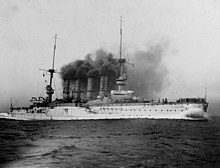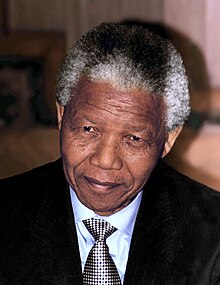Portal:History
The History Portal

Historia by Nikolaos Gyzis
History (derived from Ancient Greek ἱστορία (historía) 'inquiry; knowledge acquired by investigation') is the systematic study and documentation of the human past. History is an academic discipline which uses a narrative to describe, examine, question, and analyze past events, and investigate their patterns of cause and effect. Historians debate which narrative best explains an event, as well as the significance of different causes and effects. Historians debate the nature of history as an end in itself, and its usefulness in giving perspective on the problems of the present.
The period of events before the invention of writing systems is considered prehistory. "History" is an umbrella term comprising past events as well as the memory, discovery, collection, organization, presentation, and interpretation of these events. Historians seek knowledge of the past using historical sources such as written documents, oral accounts or traditional oral histories, art and material artifacts, and ecological markers.
Stories common to a particular culture, but not supported by external sources (such as the tales surrounding King Arthur), are usually classified as cultural heritage or legends. History differs from myth in that it is supported by verifiable evidence. However, ancient cultural influences have helped create variant interpretations of the nature of history, which have evolved over the centuries and continue to change today. The modern study of history is wide-ranging, and includes the study of specific regions and certain topical or thematic elements of historical investigation. History is taught as a part of primary and secondary education, and the academic study of history is a major discipline in universities.
Herodotus, a 5th-century BCE Greek historian, is often considered the "father of history", as one of the first historians in the Western tradition, though he has been criticized as the "father of lies". Along with his contemporary Thucydides, he helped form the foundations for the modern study of past events and societies. Their works continue to be read today, and the gap between the culture-focused Herodotus and the military-focused Thucydides remains a point of contention or approach in modern historical writing. In East Asia a state chronicle, the Spring and Autumn Annals, was reputed to date from as early as 722 BCE, though only 2nd-century BCE texts have survived. The title "father of history" has also been attributed, in their respective societies, to Sima Qian, Ibn Khaldun, and Kenneth Dike. (Full article...)
Featured picture
Did you know (auto generated)

- ... that the Pulitzer jury said that Ford Strikers Riot is "a brutal picture, it sums up much of the labor history of 1941"?
- ... that the Lord Chamberlain's plays are a historical archive of play scripts curated through theatrical censorship that provide a unique insight into attitudes to race and sexuality?
- ... that the Chinese government began compiling an official history of the Qing dynasty in 2002, but as of 2023 a protracted political review is forestalling its publication?
- ... that the leak of the upcoming Grand Theft Auto game was described as one of the biggest leaks in video game history?
- ... that 104 miners were killed in the 1995 Vaal Reefs mining disaster when a locomotive fell on an elevator, making it history's deadliest elevator disaster?
- ... that the Three Bards are the most celebrated poets in the history of Polish literature?
Nelson Rolihlahla Mandela (/mænˈdɛlə/ man-DEH-lə; Xhosa: [xolíɬaɬa mandɛ̂ːla]; born Rolihlahla Mandela; 18 July 1918 – 5 December 2013) was a South African anti-apartheid activist and politician who served as the first president of South Africa from 1994 to 1999. He was the country's first black head of state and the first elected in a fully representative democratic election. His government focused on dismantling the legacy of apartheid by fostering racial reconciliation. Ideologically an African nationalist and socialist, he served as the president of the African National Congress (ANC) party from 1991 to 1997.
A Xhosa, Mandela was born into the Thembu royal family in Mvezo, South Africa. He studied law at the University of Fort Hare and the University of Witwatersrand before working as a lawyer in Johannesburg. There he became involved in anti-colonial and African nationalist politics, joining the ANC in 1943 and co-founding its Youth League in 1944. After the National Party's white-only government established apartheid, a system of racial segregation that privileged whites, Mandela and the ANC committed themselves to its overthrow. He was appointed president of the ANC's Transvaal branch, rising to prominence for his involvement in the 1952 Defiance Campaign and the 1955 Congress of the People. He was repeatedly arrested for seditious activities and was unsuccessfully prosecuted in the 1956 Treason Trial. Influenced by Marxism, he secretly joined the banned South African Communist Party (SACP). Although initially committed to non-violent protest, in association with the SACP he co-founded the militant uMkhonto we Sizwe in 1961 that led a sabotage campaign against the apartheid government. He was arrested and imprisoned in 1962, and, following the Rivonia Trial, was sentenced to life imprisonment for conspiring to overthrow the state. (Full article...)
On this day
November 8: Intersex Day of Remembrance
- 1644 – The Shunzhi Emperor (portrait shown), the third emperor of the Qing dynasty, was enthroned in Beijing after the collapse of the Ming dynasty as the first Qing emperor to rule over China.
- 1965 – Vietnam War: In the Battle of Gang Toi, one of the earliest battles between the two sides, Viet Cong forces repelled an Australian attack.
- 1966 – Former Massachusetts attorney general Edward Brooke became the first African American elected to the United States Senate since Reconstruction.
- 1974 – British peer Lord Lucan disappeared without a trace, a day after allegedly murdering Sandra Rivett, his children's nanny.
- 2006 – Israeli artillery shelled a row of houses in the Gaza Strip town of Beit Hanoun, killing at least 19 Palestinians and wounding more than 40 others.
- Thomas Bewick (d. 1828)
- Hermann Rorschach (b. 1884)
- Rhea Seddon (b. 1947)
- Johannes Latuharhary (d. 1959)
Selected quote
In truth history does not belong to us but rather we to history.
— Hans-Georg Gadamer, German philosopher
Related portals
More Did you know...
- ... that on 26 April 1881 HMS Doterel (pictured) exploded, killing 143 of the 155 crew members?
- ... that causes of the deaths at the Berlin Wall included shooting, drowning, suffocation, suicide, and falling from a balloon?
- ... that the 19th-century swindler Bertha Heyman, known as "The Confidence Queen," conned men by pretending to be a wealthy woman who was unable to access her fortune?
- ... that only four great uncial codices have survived until the present day?
- ... that after World War II, Polish resistance organizer and Warsaw Uprising fighter Jan Mazurkiewicz was brutally tortured by the authorities in communist Poland?
- ... that tiny Paederus beetles may have caused some of the ten Plagues of Egypt?
- ... that the only known report of bloodshed during the simulated Nazi invasion of Winnipeg was from a woman who cut her thumb while preparing toast?
- ... that Dacian bracelets were used as currency and votive offerings?
Topics
Categories

History • By period • By region • By topic • By ethnic group • Historiography • Archaeology • Books • Maps • Images • Magazines • Organizations • Fictional • Museums • Pseudohistory • Stubs • Timelines • Chronology • People • Wikipedia historians
WikiProjects
![]() WikiProject History •
Ancient Near East • Australian History • Classical Greece and Rome • Dacia • Former countries • History of Canada • Chinese history • European history • Heraldry and vexillology • Indian history • Jewish history • Medieval Scotland • Mesoamerica • Military history • Middle Ages • History of Science
WikiProject History •
Ancient Near East • Australian History • Classical Greece and Rome • Dacia • Former countries • History of Canada • Chinese history • European history • Heraldry and vexillology • Indian history • Jewish history • Medieval Scotland • Mesoamerica • Military history • Middle Ages • History of Science
WikiProject Time • Days of the Year • Years
WikiProject Biography • Composers • Political figures • Saints • United States Presidents
Things you can do
 |
Here are some tasks awaiting attention:
|
Associated Wikimedia
The following Wikimedia Foundation sister projects provide more on this subject:
-
Commons
Free media repository -
Wikibooks
Free textbooks and manuals -
Wikidata
Free knowledge base -
Wikinews
Free-content news -
Wikiquote
Collection of quotations -
Wikisource
Free-content library -
Wikiversity
Free learning tools -
Wiktionary
Dictionary and thesaurus




















































